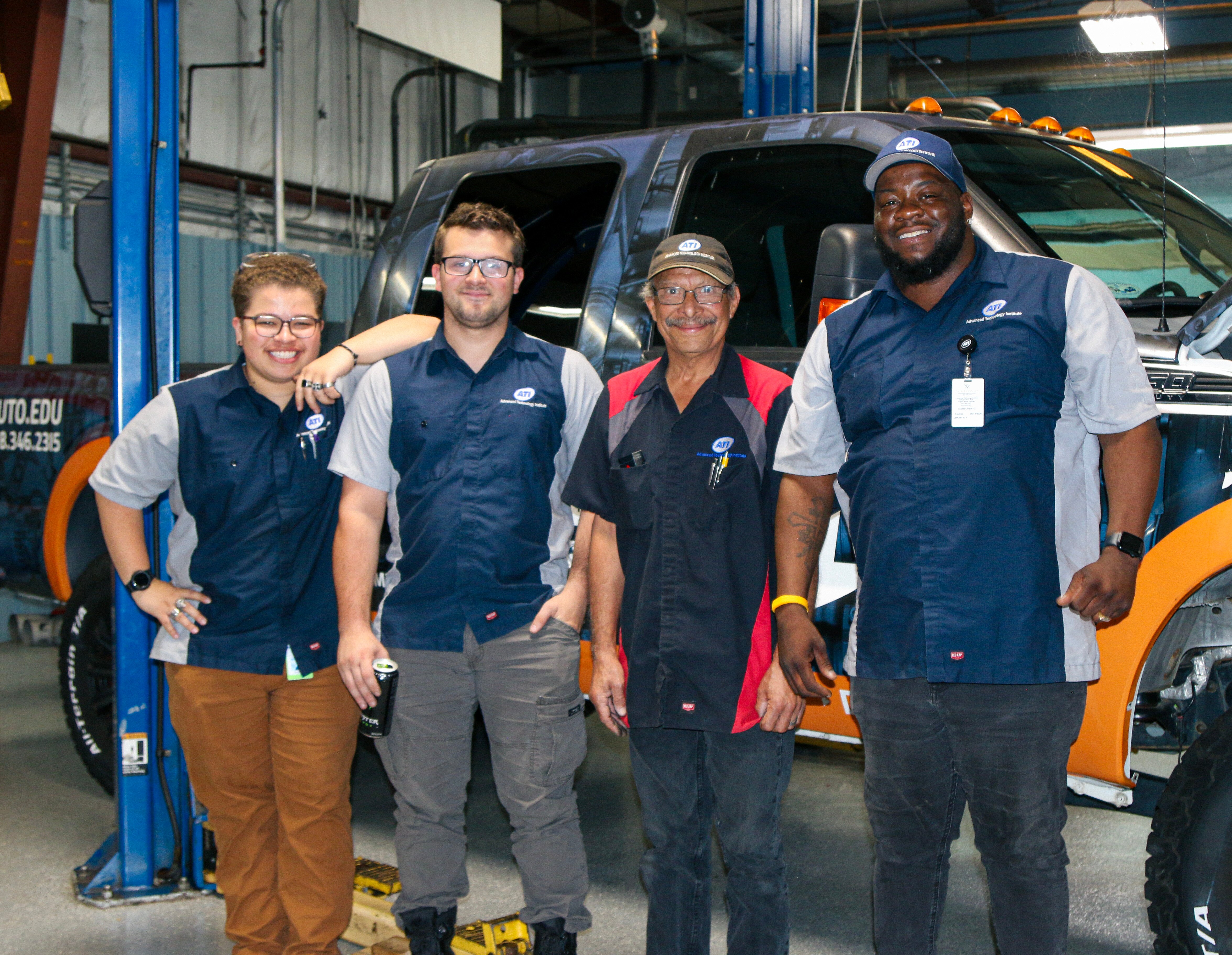Trade School Careers List

Trade school offers a focused, practical path to learning specific skills for the workplace. Unlike traditional four-year colleges, trade schools, also known as vocational or technical schools, are designed to prepare students for skilled careers through hands-on training and technical education. These programs are ideal for students who want to work toward a career without spending several years in general education courses.
Trade schools typically offer shorter programs that range from a few months to two years. Students choose a trade based on their interests, and the curriculum is built around real-world skills needed to succeed in that field. Whether you’re interested in mechanical work, healthcare support, construction, or technology, there’s likely a trade school program aligned with your goals.
Some students enroll in trade school right after high school, while others choose it later in life to change careers or gain new skills. One of the defining features of trade schools is their flexibility: many offer evening and weekend classes, allowing students to train while working or managing other responsibilities.
Quick Links
What Careers are in Trade School?
If you're asking yourself, what careers are in trade school?, the answer includes a wide range of options across industries that value practical experience and technical training. Below are several types of careers that students can prepare for through trade school programs:
- Electrician
Electricians install, maintain, and repair electrical systems in residential, commercial, and industrial settings. Training includes safety procedures, wiring, system design, and building codes. - HVAC Technician
These professionals work with heating, ventilation, air conditioning, and refrigeration systems. Programs focus on diagnostics, repair, installation, and system maintenance. - Plumber
Plumbers design, install, and maintain piping systems that carry water, gas, and waste. Trade school plumbing programs emphasize hands-on learning and code compliance. - Automotive Technician
Automotive programs prepare students to diagnose and repair vehicle systems, from engines and transmissions to electrical systems and brakes. - Welder
Welding students learn techniques such as MIG, TIG, and arc welding to join metal parts used in construction, manufacturing, and fabrication. - Construction Equipment Operator
Trade school programs in heavy equipment operation teach students how to safely handle machinery like bulldozers, excavators, and cranes on construction sites. - Commercial Truck Driver
CDL (Commercial Driver’s License) training provides instruction on driving large vehicles, understanding safety regulations, and managing long-distance hauls. - Diesel Mechanic
Diesel programs train students to inspect, repair, and maintain diesel engines used in trucks, buses, and heavy equipment.
Some additional trade school options include aircraft maintenance, marine technology, carpentry, and industrial mechanics. The variety of programs available ensures that students can match their education to their strengths and preferences—whether they enjoy building, fixing, caring for others, or working with computers.
.jpg?width=4096&height=2160&name=ATI-Welding-022720-%20(4).jpg)
Is Trade School Worth It?
Choosing a career path is a personal decision, and trade school offers several unique advantages that may appeal to students seeking a more direct route into the workforce. Here are some pros and cons to help weigh your options:
Pros of Trade School
- Shorter Program Length
Most trade school programs can be completed in less than two years, and many offer certification within 6–12 months. This allows students to complete their education and start working more quickly. - Focused, Hands-On Training
Trade schools are built around specific job skills. Students learn through lab work, simulations, and direct practice, which helps reinforce learning in real-world scenarios. - Lower Overall Cost
Trade schools generally cost less than four-year colleges. With fewer years of schooling and more streamlined coursework, students can avoid large student loan debts. - Smaller Class Sizes
Many technical programs offer smaller class environments, giving students more one-on-one attention from instructors and more time on equipment. - Essential Skills
The skills taught in trade schools often support industries that are critical to infrastructure, healthcare, transportation, and daily life.
Trade schools focus only on what’s necessary for the profession, which helps students stay motivated and see progress quickly. This structure often appeals to learners who prefer practical knowledge over theory.
Cons of Trade School
- Narrow Career Focus
Because training is so specialized, it may be more difficult to switch career paths later without additional training or education. - Less Emphasis on Broad Education
Trade school does not typically include coursework in humanities or general academics. Students looking for a broad educational experience may find it limiting. - Fewer Extracurricular Opportunities
Unlike traditional colleges, trade schools often do not offer clubs, athletics, or campus events. The focus is entirely on training and certification.
Some trades require students to pass certification or licensing exams before they can begin working. While trade school programs often prepare students for these exams, it adds an extra step before starting in the field.
Deciding whether trade school is the right path depends on your interests, goals, and preferred learning style. For students who want a more direct and practical route to a career, trade school can be a strong and effective option.
Final Thoughts
If you're exploring your future and asking, what careers are in trade school?, you’ll find a wide range of skilled, hands-on occupations to choose from. Trade school careers offer a clear path from education to employment through programs designed to teach practical, job-specific skills. From electrical work and HVAC to medical assisting and diesel mechanics, there’s a trade program to match nearly every interest.
Trade school is about learning by doing, preparing for the responsibilities and tools you'll use every day on the job. If you’re ready to focus on a skill, work toward a certification, and start building a future on your own terms, trade school could be a great next step.
There’s no one-size-fits-all path after high school. Some students thrive in academic settings, while others find their strengths in hands-on learning. If you’re the kind of person who enjoys solving problems, working with tools or technology, or caring for others in a practical way, trade school might be the right fit for you.
Explore programs near you to find a trade that fits your interests. Start working toward your future today.
Industry Knowledge
Welcome to the Advanced Technology Institute's Blog, your resource for industry insights and discussions on technologies shaping the future of automotive, heavy vehicle, hvac, welding, and other related career paths.
Explore how ATI's curriculum and hands-on learning opportunities can propel your career in the tech-driven world.


.jpg)